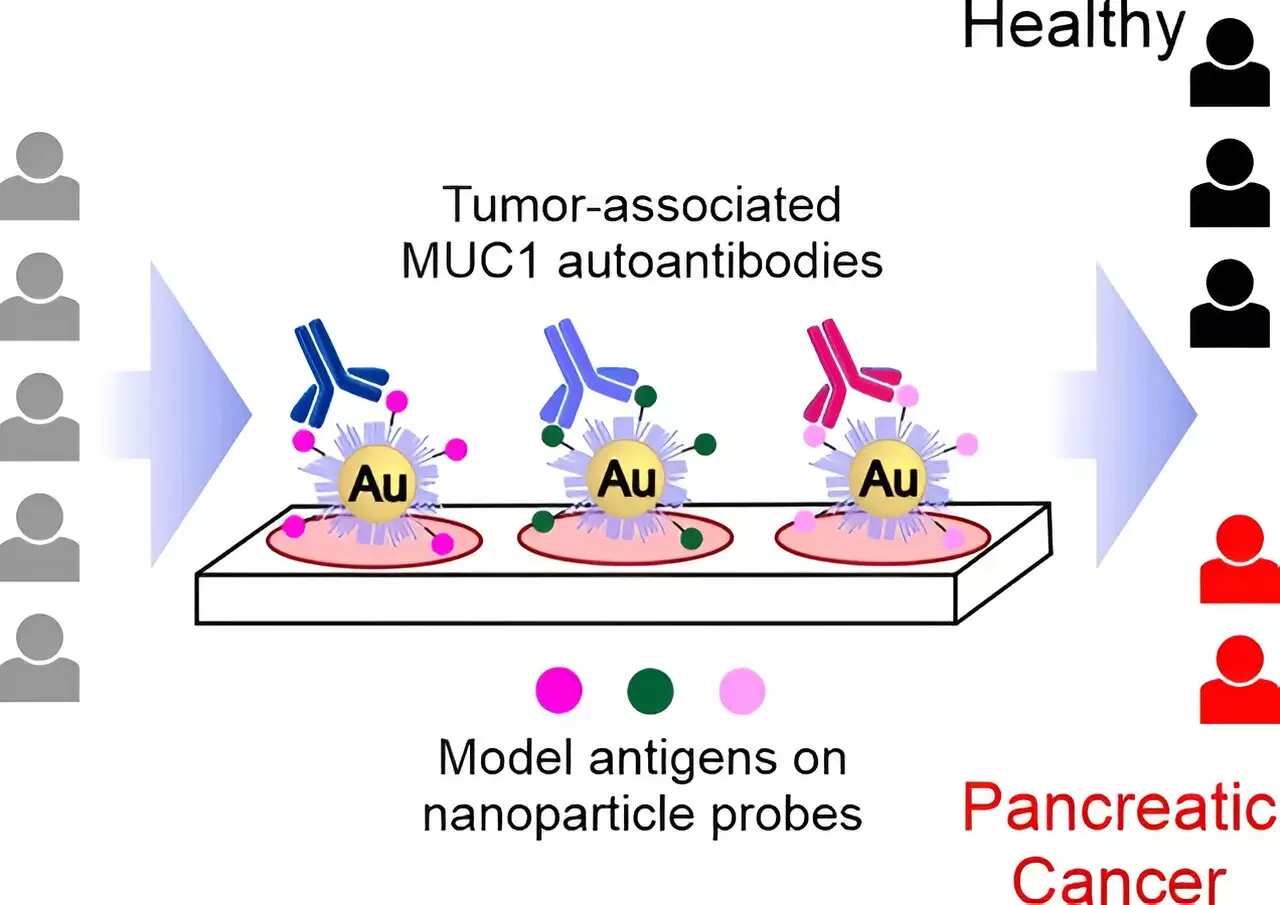Pancreatic cancer is notoriously difficult to detect early, leading to poor prognosis for many patients. Traditional markers are insufficient for effective screenings, but a recent study published in the journal Angewandte Chemie introduces a groundbreaking method for precise and reliable diagnosis.
The Importance of Autoantibodies
Tumors produce specific proteins known as tumor-associated antigens, which trigger an immune response in the body. This immune response leads to the formation of tumor-associated autoantibodies, circulating in the blood at early stages of the disease. These autoantibodies can serve as valuable markers for early detection of pancreatic cancer.
Led by a team of researchers from the University of Verona in Italy, the Center for Biomedical Research of La Rioja in Spain, and the Universidad de La Rioja, the study focused on detecting autoantibodies directed against the tumor-associated form of mucin-1 (TA-MUC1). Mucin-1 is a protein found in elevated levels in pancreatic cancer, making it an ideal target for early detection methods.
The research team designed synthetic glycopeptides that mimic different segments of TA-MUC1, enhancing the detection of autoantibodies. These glycopeptides were immobilized on gold nanoparticles to create probes for a serological assay. The diagnostic assay was validated using samples from pancreatic cancer patients and a healthy control group, demonstrating the ability of the probes to differentiate between diseased and healthy individuals.
The nanoparticle probes showed significant improvements in detecting tumor-associated autoantibodies compared to current clinical biomarkers for pancreatic cancer. Probes with smaller glycopeptide antigens, corresponding to single epitopes, outperformed larger probes that mimic multiple epitopes. Additionally, a short glycopeptide with an unnatural modification proved to be particularly effective in detecting discriminating autoantibodies, highlighting the potential of this new approach for early detection.
The research team’s innovative method for detecting tumor-associated autoantibodies in blood samples shows great promise for early diagnosis of pancreatic cancer. By utilizing synthetic glycopeptides and nanoparticle probes, the team has demonstrated the ability to differentiate between healthy individuals and those with pancreatic cancer with greater accuracy than current clinical biomarkers. This structure-based approach paves the way for more effective early detection screenings and improved outcomes for pancreatic cancer patients.


Leave a Reply